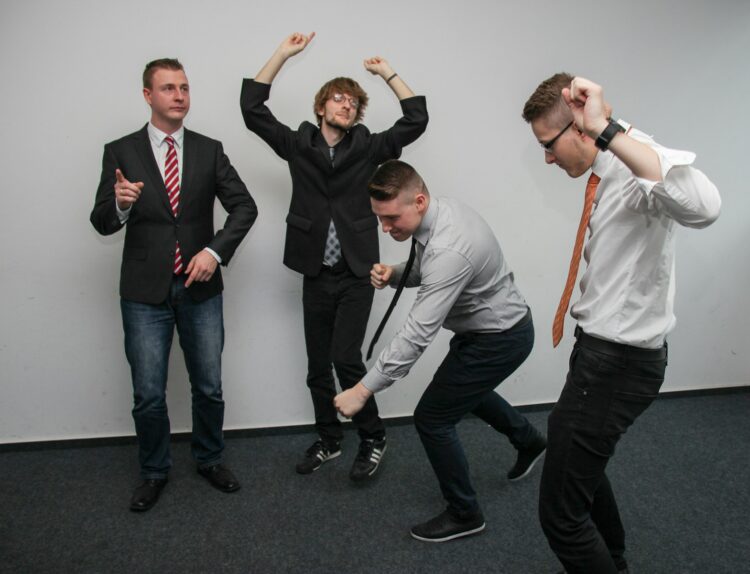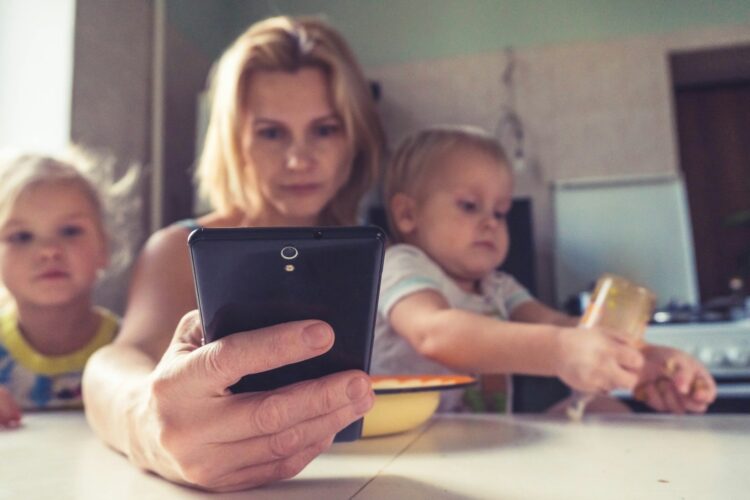
Fitting in comes at a cost. Sometimes it’s subtle — a laugh at a joke you didn’t find funny, a nod when you’d rather shake your head, or a smile when you’re secretly counting the minutes until you can leave. People often pretend to enjoy things not because they want to, but because standing out feels riskier than going along. Here are some of the things many people claim to love when, deep down, they really don’t.
Networking Events

Networking is marketed as an opportunity — a room full of potential connections, business cards, and possibilities. But for many, it feels like walking into a performance: forced smiles, empty conversations, and people sizing each other up while pretending it’s authentic. Most people don’t leave with lifelong partnerships. They leave with a stack of cards they’ll never use.
Group Workouts

On Instagram, group workouts look like high-energy fun: people cheering, sweating together, sharing motivation. In reality, many dread the shouting instructor, the competitive energy, and the discomfort of working out under watchful eyes. Some push through, not because they enjoy it, but because it’s what their friends are doing or what “healthy” people are supposed to love.
Office Parties

Office parties are framed as bonding experiences, a chance to “celebrate the team.” But most people secretly dislike them. They’re forced fun: the same coworkers you spend forty hours with each week, awkward small talk, and watered-down drinks you don’t want. Leaving early risks looking antisocial or ungrateful, so people linger, laugh at jokes that aren’t funny, and smile for group photos.
Trendy Food and Drinks

Trendy foods come and go, and people often pretend to love them to look sophisticated, healthy, or adventurous. Secretly, many think they taste bitter, bland, or downright strange. But admitting you’d rather have French fries instead of a green juice risks looking uncultured or unhealthy. So they post photos of their acai bowl, smile through the taste, and act impressed.
Loud Concerts

Concerts look magical on social media: flashing lights, thousands singing in unison, once-in-a-lifetime energy. But for many, the reality is standing for hours in crowded, sweaty spaces, ears ringing from the noise, and wishing it would end sooner. Still, they go because everyone else is going, because it feels uncool to say you’d rather stay home. They post videos they’ll never rewatch and claim it was unforgettable, even though they secretly didn’t enjoy a second of it.
Team Sports

Playing in casual leagues or company sports teams is marketed as camaraderie, but many people dread it. They show up late, drag their feet, and wish they were anywhere else. Yet they keep going, cheering when they have to, smiling through another game, and pretending it’s fun. What they actually feel is pressure: pressure to bond, to not let people down, to be “part of the team.” For them, it’s not about enjoyment at all — it’s about fitting the mold of someone who plays along.
Drinking Culture

Alcohol has become a social script. After work drinks, weekend shots, and champagne toasts — it’s all framed as fun, but for many, it’s tiring. Some dislike the taste, others the aftereffects, but they drink anyway. They laugh louder as rounds keep coming, pretending to enjoy the ritual, because refusing feels like breaking unspoken rules. Admitting you’d rather skip the drink risks being labeled boring or uptight.
Small Talk

Small talk is the great social mask. People complain about traffic, weather, or sports they don’t even follow. They nod, smile, and keep the exchange going, not out of joy but out of fear of silence. Silence is treated as awkward, so people fill it with meaningless chatter. Pretending to enjoy small talk helps them appear friendly and easygoing, but the truth is most leave drained.
Family Traditions

Holidays, religious rituals, or family customs often come with pressure to smile along. Maybe you’re tired of the same dinner, uninterested in the ceremony, or don’t connect with the tradition anymore. But you go, you eat, you sing, you pretend to love it, because saying otherwise would spark conflict. Many people fake joy at family gatherings because it’s easier than being honest.
Social Media Trends

From TikTok dances to hashtag challenges, people often join in not out of joy but fear of missing out. They film the video, add the trending song, and hit upload because everyone else is doing it. The smile in the clip isn’t always real — it’s performative. Enjoyment doesn’t come from the activity itself but from the likes and validation afterward. Social media trends thrive on pretending, because no one wants to look like the one who “doesn’t get it.”
Weddings

Weddings are praised as magical events, but many guests secretly find them draining: long ceremonies, repetitive speeches, expensive outfits, and forced dancing. People clap, toast, and act enthusiastic because it’s expected. Admitting you’re bored at a wedding feels disrespectful, so they fake joy to avoid judgment.
Camping Trips

Camping is framed as adventure: fresh air, stars, freedom. But many people hate the reality: bugs, uncomfortable sleep, no bathrooms, and endless dirt. They smile for group photos, pretend to love the “simple life,” and post about reconnecting with nature. Inside, they’re counting down the hours until they’re back in a real bed. Admitting dislike risks sounding spoiled, so they play along.
Fashion Trends

High heels that blister, suits that choke, skinny jeans that restrict breathing — people often pretend to love fashion trends because it wins compliments. They endure pain, discomfort, and impractical clothes for the sake of looking stylish. Outwardly, they act proud, but inwardly, they can’t wait to change.
Watching Sports

Cheering for teams you don’t actually care about is a universal form of fitting in. People nod through conversations about stats, wear jerseys, and shout when everyone else shouts, all while feeling detached. Sports fandom is often more about belonging than passion. Saying you don’t care can isolate you from family, friends, or colleagues, so people pretend. The act of caring becomes more important than the actual game.
Being Busy

Busyness itself has become a badge of honor. People boast about their packed schedules, late nights, and exhaustion, pretending to enjoy the grind. Inside, most crave rest, but in a culture that equates stillness with laziness, they fake enthusiasm for busyness. They smile while saying “I’ve been so busy” as if it’s a flex, when what they really want is a break. Pretending to love busyness helps them fit a world that rewards burnout.

